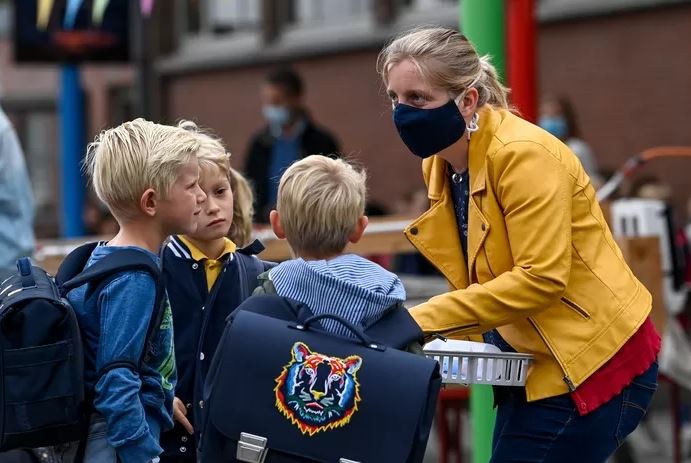Fewer than 1 in 5 confirmed coronavirus infections among children and teachers happened at school in Belgium, according to a new study by the Sciensano health institute.
"The number of infections in schools only increases after the number of cases in the general population begins to rise," stressed virologist Steven Van Gucht during a press conference on Friday, where he presented the results.
A large majority of infections (more than 80%) among pupils and staff took place outside the school, and fewer than 20% infections probably took place at school, according to the results.
"These data reaffirm that schools are not forerunners or drivers of the epidemic, but rather after-effects," he said, adding that the number of infections in schools is in line with the cases in society as a whole.
Related News
- Belgium extends lockdown measures for 2 more weeks
- Belgium prepares 'plan C' to fight UK coronavirus variant
- No masks for children in Flemish primary schools
"Teachers and other school staff were most likely infected by colleagues and, to a much lesser extent, pupils between September and the beginning of the autumn holidays," said Van Gucht. "For the period after the holidays, there is not yet sufficient data to make a statement."
Age differences
Additionally, the report shows clear differences in the infection course based on pupils' ages.
"At the start of the second wave, mid-September, we first saw an increase in the number of infections among older teenagers (16-18) and young adults (19 to 25)," said Van Gucht. "After that, infections increased in the working-age population and only in the final stage in children under 12 years of age."
Even at the peak of the curve, the infection rate among children under 16 was lower than in the general population, in all regions, according to the study.
"However, in teenagers from 16 and young adults, the virus already behaves like in adults," said Van Gucht. "They can therefore play an important role in the progress of the epidemic."
According to Sciensano, the proves once again shows that schools should remain open as long as possible.
"Education is a societal priority, and there is no such thing as zero-risk, but it should be possible to make the school a relatively safe environment with appropriate measures," Van Gucht added.
The study is based on data on the number of infections between 1 September and 13 December 2020, collected by the Flemish and Francophone guidance centres (CLB and PMS-PSE).
Maïthé Chini
The Brussels Times

